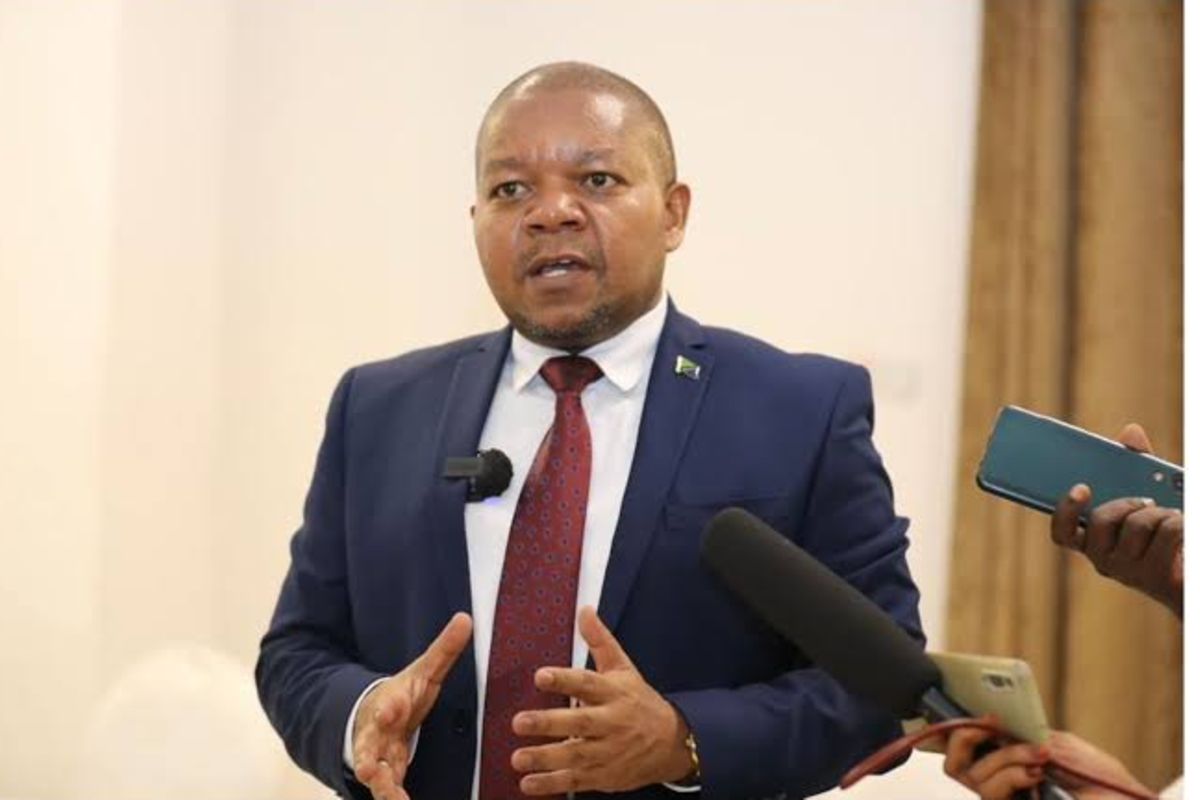Dar es Salaam. Kamishna Mkuu wa Mamlaka ya Mapato Tanzania (TRA), Yusuph Mwenda amesema katika uongozi wake ndani ya mamlaka hiyo, taasisi za Serikali zinazostahili kulipa kodi zisitarajie kupata upendeleo.
Amesisitiza msimamo wake huo, akieleza kuwa anazichukulia taasisi hizo kama walipakodi wengine na hata zinapofika TRA, zijione na hadhi ya mlipakodi na si vinginevyo.
Amesema kiu yake ni kuona taasisi za Serikali zinazostahili kulipa kodi zinakuwa mfano kwa zile binafsi, kwa kuwa zenyewe zinajua zaidi umuhimu wa kodi.
Mwenda ameyasema hayo leo Alhamisi, Septemba 12, 2024 katika Semina na taasisi za Serikali zinazolipa kodi, ikiwa ni mwendelezo wa mkakati wake wa kukutana na walipakodi wote.
“Usawa tunaouzungumzia ni kuhakikisha ninyi (taasisi za Serikali) mnalipa mnachostahili na wengine wanalipa wanachostahili, hii ndiyo ahadi yangu na ndicho nitakachokisimamia,” amesema.
Amebainisha anachokitaka kuwa ni kuona walipakodi kutoka serikalini hawaonewi katika kulipa kodi na hawaionei TRA katika utekelezaji wa majukumu yake.
“Tunatarajia nyie muwe mfano kwa taasisi binafsi zinazolipa kodi kwa sababu bila kodi, hata nyie labda mshahara msingelipwa,” amesema.
Katika semina hiyo, Mwenda amesema zipo taasisi zinazokusanya kodi ya zuio, lakini haziiwasilishi TRA kama inavyopaswa na nyingine hazikusanyi kabisa, kadhalika zipo zile zinazokusanya lakini haziwasilishi kinachostahili.
“Ninyi ni taasisi za Serikali lakini kwangu mimi ninyi ni walipakodi kama wengine. Ningependa mkija TRA mjione ninyi ni walipakodi kama wengine.
“Rais wakati ananiapisha alisema tunataka nchi ijitegemee, tumechoka kukopa, ili nchi ijitegemee tunapaswa kukusanya vya kutosha. Sasa kama kuna mtu anayepaswa kumuunga mkono Rais ni ninyi taasisi za umma,” amesema.
Kwa mujibu wa Mwenda, zipo taasisi za Serikali zisizojisajili na kuwasilisha ritani ndani ya muda na hazilipi kwa wakati ilhali zina sifa za kufanya hivyo.
Amesema ni vyema inapoonekana kuna mashaka na huduma zinazotoa ziende Idara ya Walipakodi wakubwa kupewa ufafanuzi na kuepusha kuziingiza kwenye hasara.
“Taasisi nyingi zinadaiwa, sisemi mlipe yote, tunataka muishi lakini na Serikali iishi. Mkutane na Kamishna wa Walipakodi Wakubwa mjadiliane njia ya kulipa kwa awamu, lakini msiwe watu wa kusubiri madeni yawe makubwa ili mpewe fursa ya kulipa kwa awamu,” amesema.
Kuhusu mifumo, amesema ni kiu yake kuona mifumo ya taasisi hizo za Serikali inasomana na TRAili kuwatendea haki kwa kuhakikisha wanalipa wanachostahili.
Hata hivyo, Mwenda amesema si kosa kutofautiana, lakini wana majukwaa ya kutatua migogoro ukiwemo uongozi wa ngazi husika kabla ya kwenda juu zaidi.
“Tusingependa kuwa na migogoro na ninyi, tunataka kuwa na walipakodi wengi zaidi. Tungependa tutumie muda mwingi kutoa elimu ya kupata walipakodi wengi zaidi na sio kusuluhisha migogoro na ninyi ambao mnajua wajibu wenu,” amesema.
Amesema ukifika wakati watalazimika kwenda mahakamani kwa ajili ya kutatua migogoro hiyo baina ya TRA na taasisi hizo.
“Nitajitahidi sana kama Kamishna Mkuu kuhakikisha hatuendi huko, tumalize sana sana kwenye ngazi ya uongozi. Lakini kama mnatulazimisha kwenda huko tutakuwa tayari,” amesema.
Akizungumza katika semina hiyo, Ofisa kutoka Chuo Kikuu Mkwawa, Emma Mbena amesema elimu hiyo ya kikodi inapaswa kujikita kwenye kuonyesha namna gani baadhi ya taasisi za Serikali zimekuwa walipakodi wakubwa.
Kadhalika, amependekeza elimu kwa taasisi za umma ianze na kuelewesha kwamba je, wao ni walipakodi au wakusanyaji.
“Pia, tunapaswa kujua kwa mazingira gani cheti cha msamaha wa kodi kinatolewa kwa taasisi za Serikali na wakati gani napaswa kujua kwamba huyu anayo au hana,” amesema.
Kamishna wa Walipakodi Wakubwa TRA, Michael Muonya amesema semina hiyo inalenga kuwaweka wazi juu ya hatua mbalimbali zinazochukuliwa na TRA katika utozaji kodi.
Amesema lengo lingine ni kuwasikiliza wadau wote kwa kuwa TRA ni taasisi ya kusikiliza.
Source: mwananchi.co.tz














